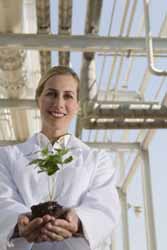Fostering collaboration in food research
An element of the EU’s Seventh Framework Programme's (FP7) mission is working with researchers from non-European countries. Key to facilitating this are the NCPs; thus, the FP7 fosters collaborative research networks. Working towards that in the context of FAFB themes was the BIO CIRCLE 2 project. Running for two years up to January 2013, the project included 5 European partners and 16 from the rest of the world. BIO CIRCLE 2 received EU funding of EUR 1 million. With that the project aimed to increase the participation of non-European researchers in FP7 FAFB projects, and to strengthen collaborations. BIO CIRCLE 2 achieved its goals. It built the capacity of non-European NCPs via five training sessions, focusing on skills related to FP7 issues, hosted either online or at European locations. In addition, the project developed the capacity of foreign researchers via information days and training sessions for those researchers in their countries. These reached 116 events in total, during which partners had the opportunity to share their experiences with other partners. Also, European BIO NCPs, in conjunction with the European Commission, organised two brokerage events to coincide with two 'Knowledge Based Bio-Economy' (KBBE) calls. There was a substantial increase in participation in FP7-KBBE calls. BIO CIRCLE 2 promoted its activities using various tools, including the project's website and a project leaflet. The project has successfully fostered cooperation with non-European agencies regarding the FAFB field through an extended and reinforced network. This has also enlarged the knowledge base of relevant participants, and enhanced the research capacity of hundreds of researchers worldwide.
Keywords
FAFB, research collaboration, networking, national contact points, KBBE, training



